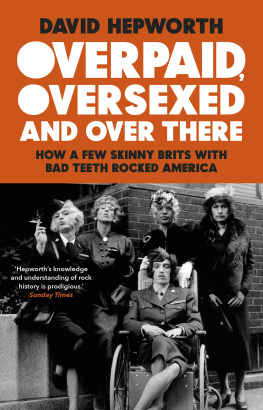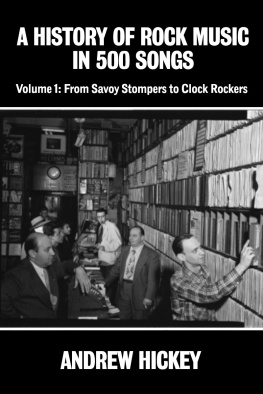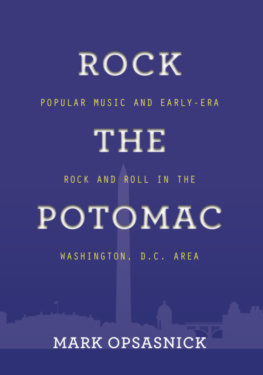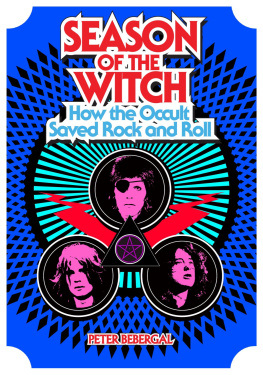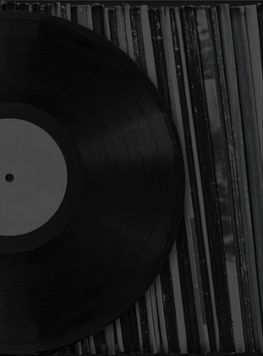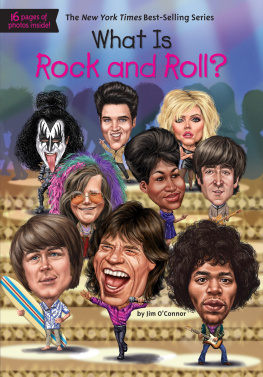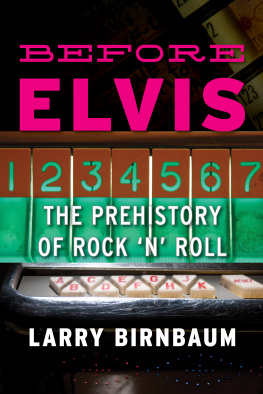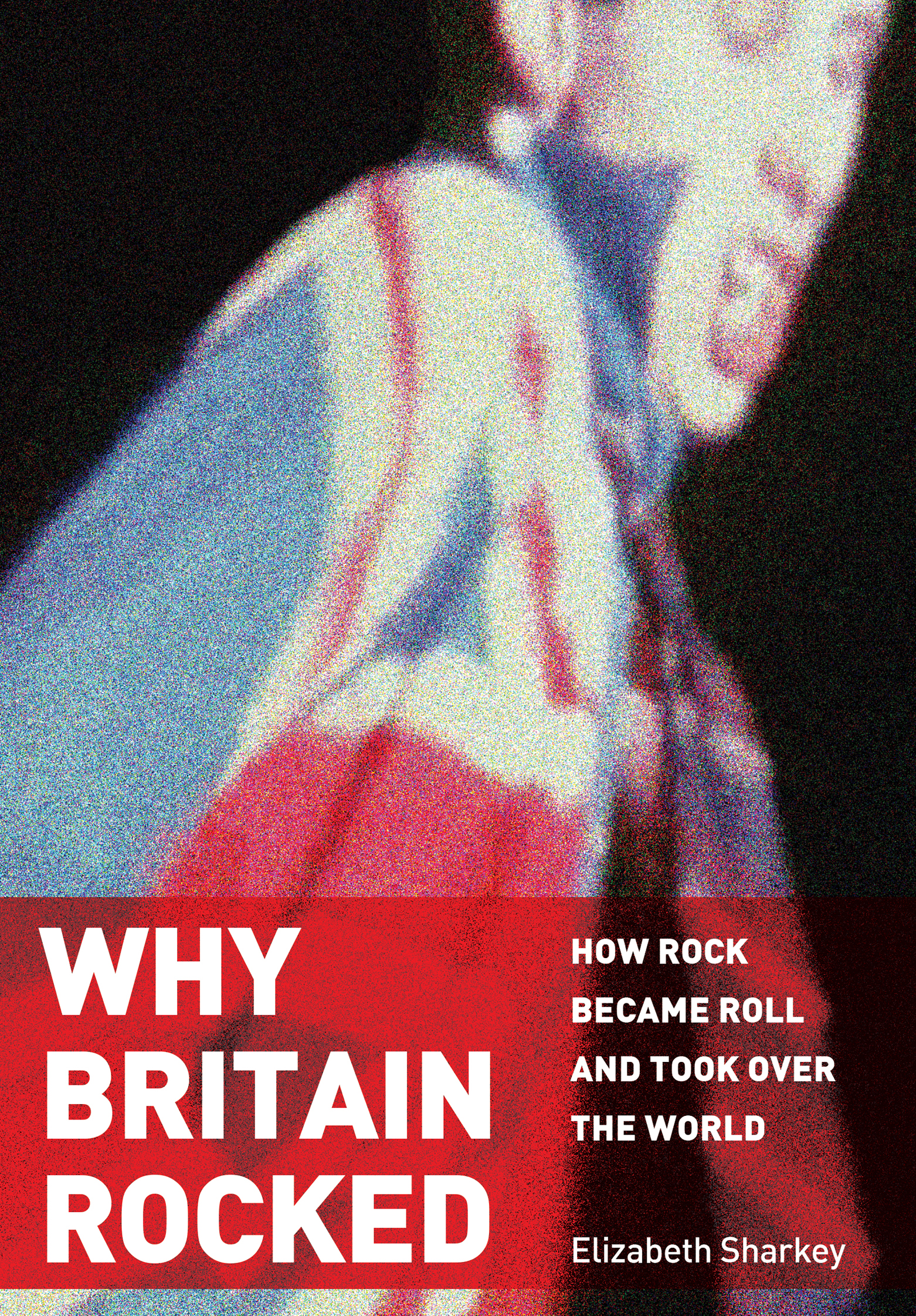Contents
Guide
Pagebreaks of the Print Version
WHY BRITAIN ROCKED:
How Rock Became Roll and Took Over the World
Elizabeth Sharkey
Academica Press
WashingtonLondon
Library of Congress Cataloging-in-Publication Data
Names: Sharkey, Elizabeth (author)
Title: Why britain rocked : how rock became roll and took over the world | Elizabeth Sharkey
Description: Washington : Academica Press, 2022. | Includes references.
Identifiers: LCCN 2022944868 | ISBN 9781680534450 (hardcover) | 9781680534474 (paperback) | 9781680534467 (e-book)
Copyright 2022 Elizabeth Sharkey
For my family, my guiding light and inspiration
Contents
Introduction
I understood I had an unusual infatuation with music around the age of nine. Some school friends were over to play one afternoon in the summer holidays. At the time I was obsessed with the Grease soundtrack album and all I wanted to do was put it on the record player and everyone have a dance in the living room. But they were only vaguely interested; a couple thought it was rubbish but I persisted. I hit them with Greased Lightnin and asked them to listen, listen properly, couldnt they hear it? How marvelous it was? I started to dance like a furious pixie but when I came out of a particular intense appreciation of the saxophone bit I looked up and I was alone in the room. They had all fled the house and gone outside to play in the much more exciting haystacks in the barn.
Music is personal. Someones all-time anthem can be someone elses three minutes and fifty-nine seconds of intolerable tedium. For some people, music is not personal at all, its merely entertainment. They buy it because theyre told to by advertising campaigns or because its the latest thing and all their friends are listening to it. Growing up, music was everything to me: my home, my thrill, my escape and my understanding of the world. If youre like me and you love certain songs or pieces of music to the core of your very soul in fact, if those songs or pieces of music are little maps of the landscape of your soul - then you might, as I was, be curious to look a little deeper into just why, how, such magic came to be.
We all know the history that led to Americas musical dominance. There have been countless books and films tracing the story of early twentieth century blues, gospel and jazz that birthed rock and roll and so on. Britains pop history, in contrast, rarely starts before 1950. Ive always loved music documentaries on the hows and whys of British music - the story of the Beatles and the developments of punk, ska, post punk, gothic, new romantic, house, Britpop and drum n bass but in recent years Ive found them increasingly lacking. Ive become more interested in the wider question; the big story still waiting to be told as to why Britain has produced some of the greatest pop music in the world. Many have wondered the same, but to my mind no answers have ever truly got to the bottom of it.
The story goes that Britain suddenly started making spectacularly great music in the 1960s under the influence of American blues and rock and roll, like some clever, quick learning cultural satellite. It seems there was not much to say about British music before then, other than British dance bands and jazz musicians who created fabulous interpretations of the American style. With a quick glance, its hard to disagree with that starting point. But if we stop, step back and look further into British history, we will discover why, of all American music crazes in Britain it was rock and roll and the blues, via skiffle, that British artists took to another level. You see, Britains mid twentieth-century pop music explosion didnt happen from a standing start; far from it. For something so profound, dazzling and multifaceted the reasons for its sudden appearance lie deeper than those legendary deliveries of blues records into Liverpool and the legacy of music hall. To look at it another way, Britain is a country roughly the size of the state of Minnesota but has been as prolific in its creative output as a country forty times its size. Doesnt it make you wonder? Of course, the UKs compact size has been an advantage, allowing the speedy communication of trends and developments, but thats just logistics. In researching Why Britain Rocked Ive examined the fertile soil that allowed the seedling plant of British pop to prosper and flower under the heat of 1960s libertarian change. Further, Ill reveal how Britain and America have, in fact, been musically linked and a spur to each others creativity for hundreds of years.
Whenever Ive fallen in love with a newly discovered band or artist my first thought would be to ask, where are they from? Although, Im not sure why. Maybe its because Ive always found the best music has a sense of place; an essence of the artists home and history. Or its possibly due to something in the timbre of their voice or the melody and phrasing, along with the shifts of tempo and chord changes which have, in my imagination, led to a voyage of discovery in both time and place. Of course, its almost now a clich to mention the Beatles when talking about British pop, but my love for them is unfathomably deep. It goes beyond merely loving their music. When I hear a Beatles song, I experience an almost parental connection of warmth and trust, along with the strange nostalgia one has for the years just before you were born. When I was a young teenager, I used to listen to my brothers The Beatles Ballads album and I was mesmerized by the sound of their voices coming through my big headphones. I used to get a little thrill turning down the volume on one side to hear the isolated guitar track on All My Loving and then the other side to hear John and Pauls naked harmonies; in my mind I was right there in the recording studio with them. Til There Was You, Here Comes the Sun and And I Love Her made me dream of sixties Britain, tinged with a bit of sun dappled, student Americana. How I yearned to have been there just for one day.
I grew up on a farm in north Lincolnshire, under its big skies, surrounded by fields and woodland, then we later moved to one of its market towns further south. However, I got hold of my brothers copy of Joy Divisions Unknown Pleasures when I was around fourteen and initially thought, what the hell is this? I couldnt work it out for ages. But in my minds eye I saw lift shafts, broken glass and epic, angular darkness that I later learned was an imprint of Manchesters decaying industrial landscape. Similarly, while listening to Blondies Parallel Lines, I became obsessed with the louche drive of New York. One of my all-time favourite songs is Native New Yorker by Odyssey. God, I love that song. Its a high-flying, big picture anthem that captures the elegant shimmer and pulse of the city at its most glamorous and creative, against the backdrop of one of its more delinquent periods.
All of which brings me back to the fundamental question, which was the main preoccupation of all my childhood thoughts and dreams. What gives music that sense of place and time, with all its myriad differences? Because there lies the beauty of the greatest music. The intoxication of pressing play and plunging into the fleeting humanity of a moment, as I do when I listen to the Bee Gees Nights on Broadway; a song that takes you from its mean streets opening to the sweetest heartbroken serenade to the glorious confusion of Manhattan nightlife in 1975. Others are elemental. I drift into a childhood vision of summer when I hear Wichita Lineman; the languid opening bass drops you into the shimmering mid-July heat with the occasional low breeze, and I can see fields of ripened wheat and the long, long line of a dusty, empty road disappearing into a distant horizon. Music can conjure a sparkling clean river rushing over mossy stones; the rain and wind up on the hills; a crying hawk climbing high into the blue; or the expansive joy of hitting the open road while almost being able to taste the essence from where it came.


